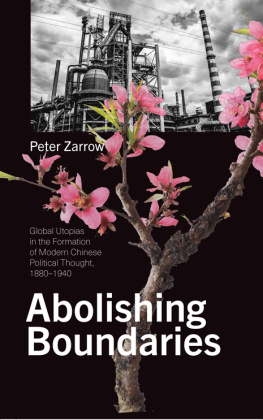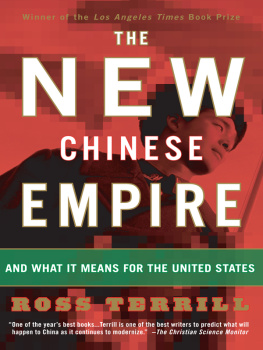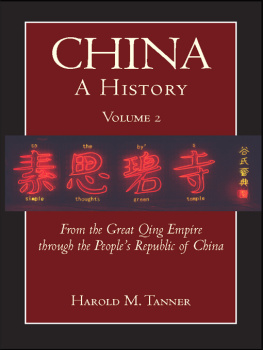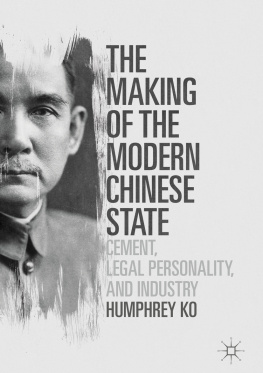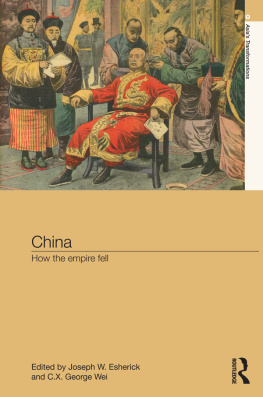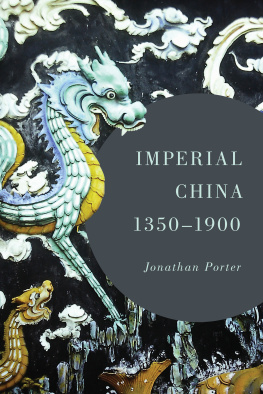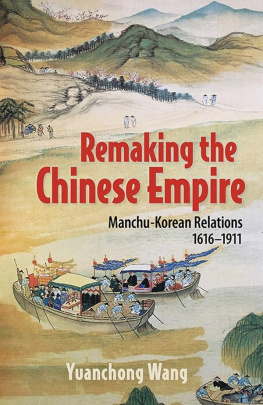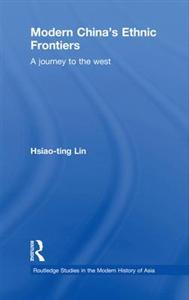Stanford University Press
Stanford, California
2012 by the Board of Trustees of the Leland Stanford Junior University. All rights reserved.
No part of this book may be reproduced or transmitted in any form or by any means, electronic or mechanical, including photocopying and recording, or in any information storage or retrieval system without the prior written permission of Stanford University Press.
Printed in the United States of America on acid-free, archival-quality paper
Library of Congress Cataloging-in-Publication Data
Zarrow, Peter Gue, author.
After empire : the conceptual transformation of the Chinese state, 18851924/Peter Zarrow.
pages cm
Includes bibliographical references and index.
ISBN 978-0-8047-7868-8 (cloth : alk. paper)
ISBN 978-0-8047-7869-5 (pbk. : alk. paper)
ISBN 978-0-8047-8187-9 (ebook)
1. MonarchyChinaHistory20th century. 2. ChinaHistory18611912. 3. ChinaHistory19121928. 4. ChinaPolitics and government19th century. 5. ChinaPolitics and government20th century. I. Title.
DS761.z36 2012
951'.035dc23
2011039936
Typeset by Bruce Lundquist in 10/15 Sabon
Cover illustration: The calendar poster on the cover of this book welcomes the new republic and national unity, displaying the boy emperor Puyi (center), Sun Yat-sen (upper left), Li Yuanhong (upper right), and two women revolutionaries, Cao Daoxin and Xu Wuying (below). The lower half illustrates various revolutionary scenes, including foreign sympathizers (lower left).
AFTER EMPIRE
THE CONCEPTUAL TRANSFORMATION
OF THE CHINESE STATE,
18851924
Peter Zarrow
Stanford University Press
Stanford, California
Contents
Preface
This is a study primarily of political thought. I began with a set of simple questions. How did the Chinese people stop believing in the emperor in the late Qing period and decide to overturn a monarchical system that could be traced back over two thousand yearsin some respects over three thousand years? Did the foreign origins of the Qing dynasty (16441912) really weaken it after 260 years of rule? What made it possible to suddenly imagine a Chinese state without the emperorwhat conditions of political possibility had emerged by the end of the nineteenth century? For millennia the monarchy had held a central position in any conception of Chinese politics and culture: how could it be replaced? And whatever replaced it, did ideas about the monarchy collapse and disappear, or did they continue to influence the shape of the post-imperial political order? How did the monarchy manifest itself in the daily lives of people as its institutional basis broke down? What did the court do to makes its presence known and press claims to its indispensability? Above all, how were these claims attacked? How did new republican rituals come to replace the old imperial rituals after 1912?
These questions turned out not to be so simple and led to further questions. What does it even mean to speak of a belief in the emperorsupposedly Son of Heaven and possessor of Heavens mandatewhile it was no secret that emperors were all-too-fallible men? Was it the Qings policies or the entire emperor system that proved incompatible with the changes China was undergoing in the late nineteenth and early twentieth centuries? If the Qing had been Han Chinese instead of Manchu, would it have survived in some form? Yet put another way, the question is not how the Qing failed but how did popular attitudes change so that its overthrow made sense? Could new political institutions ever replace the numerous functions that the emperor (or the idea of the emperor) performed? Once the emperor was no longer, did this create a sudden vacuum? Or was the monarchy already so outmoded that its fall simply cleared the ground for the construction of better institutions?
I am sure these are important questionsnot the only important questions about China around the turn of the twentieth century, but certainly among them. I am less certain I have answered them well. At the least, a focus on how Chinese proposed that the state should be reconstructed offers new perspectives on a familiar modern story: from subject to citizen, slavery to liberty, and ignorance to enlightenment. In another, older version, from colonial oppression to national independence. This is a story with special resonance in America, but it is known everywhere; it is a story claimed by all revolutions and by all colonized peoples. It has long supplied our story of modernity: from the unthinking traditional to rationality, or from superstition to science and secularism. Or in less optimistic terms, to disenchantment of the world and cold utilitarianism, to social institutions of disciplinarity and governmentality.
These are well-known stories, and I do not intend to deny their truths but to suggest that they imperfectly capture the discursive frameworks of Chinese modernity. The Revolution of 1911 replaced a monarchical system with a republic. The republic was heavily flavored with the taste of military dictatorship and soon fell into warlordism, but the ideal of republicanism continued to motivate intellectuals and activists. At the same time, the range of beliefs that had surrounded the emperorship survived the revolution: the need for enlightened rulers, the power of sageliness, the paternalistic responsibilities of the educated classes, and a moralized cosmology. The 1911 Revolution could not have happened unless large numbers of people were prepared to accept an emperor-less world, but it did not only overthrow entrenched views: it built on them as well.
Chinas rejection of millennia of dynastic rule was a product of world historical trendsas Chinese intellectuals often argued at the timebut it followed a twisting and turning path. This path led from one set of beliefs about relations among the sacred, political legitimacy, and textual authority to, eventually, a new set of beliefs if not a new common faith. It does not matter whether we call these beliefs stories, myths, or the discovery of the rational, though it does matter that the revolutions of twentieth-century China vehemently claimed to operate in the name of civilization and rationality. Chinese elites and commoners moved from a belief in the cosmic and charismatic role of the emperor to deep-seated skepticism in the course of just two generations in the late nineteenth and early twentieth centuries. The traditional emperorship had affirmed moral values held by the whole community; the collapse of the monarchy was therefore a significant part of widespread cultural crisis. The fall of the last dynasty, the Qing, represented the collapse not just of a single dynasty but of the entire imperial system, though this was not clear to all in the immediate wake of the revolution. The whole cultural edifice of the imperial system declined together, including: first, the coercive powers of the imperial court vis--vis local society; second, the civil service examination system that recruited the bureaucracy and reaffirmed the cultural capital of the gentry; and third, the immense system of classical (sacred) learning upon which the exams were based.
Story singular is surely a misleading description of this book. I have pursued tangents and explored byways, or at least started down them: one issue does lead to another and to yet another. Still, this study focuses on changes in Chinese views of the emperorship from the early essays of Kang Youwei (18581927) in the 1880s, perhaps the first writings to fundamentally challenge the monarchy, to the expulsion of the last Qing emperor from the Forbidden City in 1924 in an atmosphere of iconoclasm. I discuss other figures of the intellectual stature and creativity of Kang in the pages that follow, especially his disciple Liang Qichao (18731929). I see Liang as a particularly eloquent and sensitive bellwether who reflected and anticipated key ideas of the age. But this is not an intellectual biography of the journalist-scholar Liang. Rather, in addition to major figures, I cite the works of students, anonymous editorialists, and textbooks, and I look at political movements and political rituals in order to understand a great transformation.
Next page

